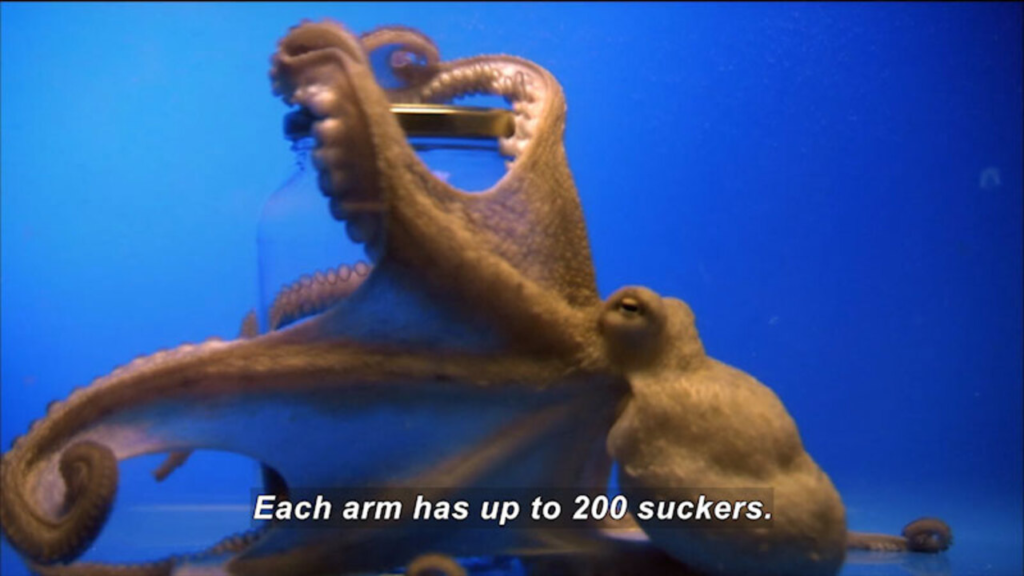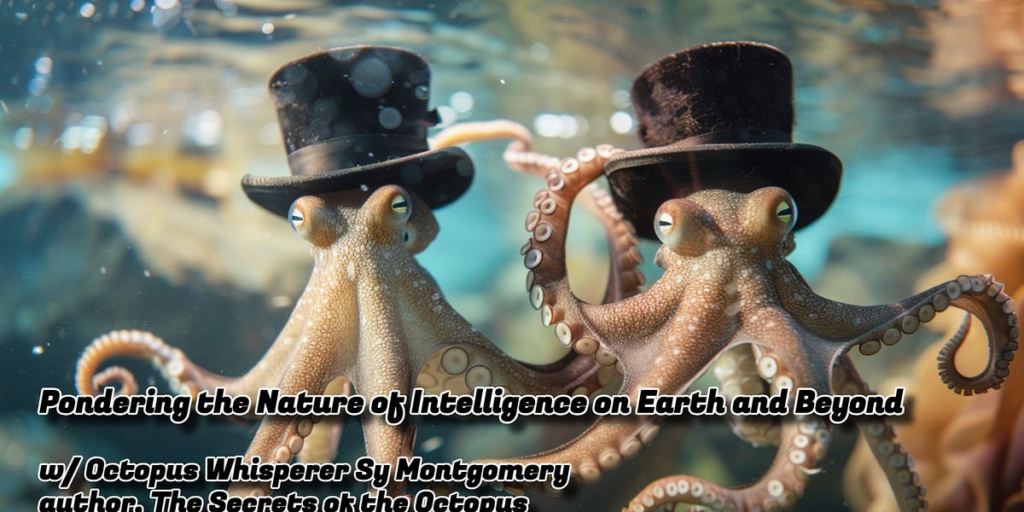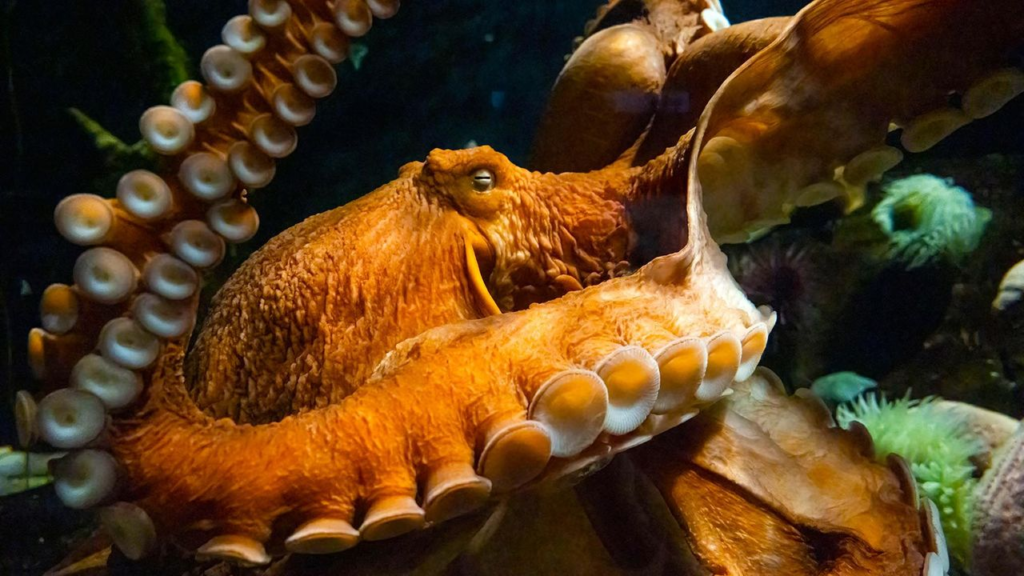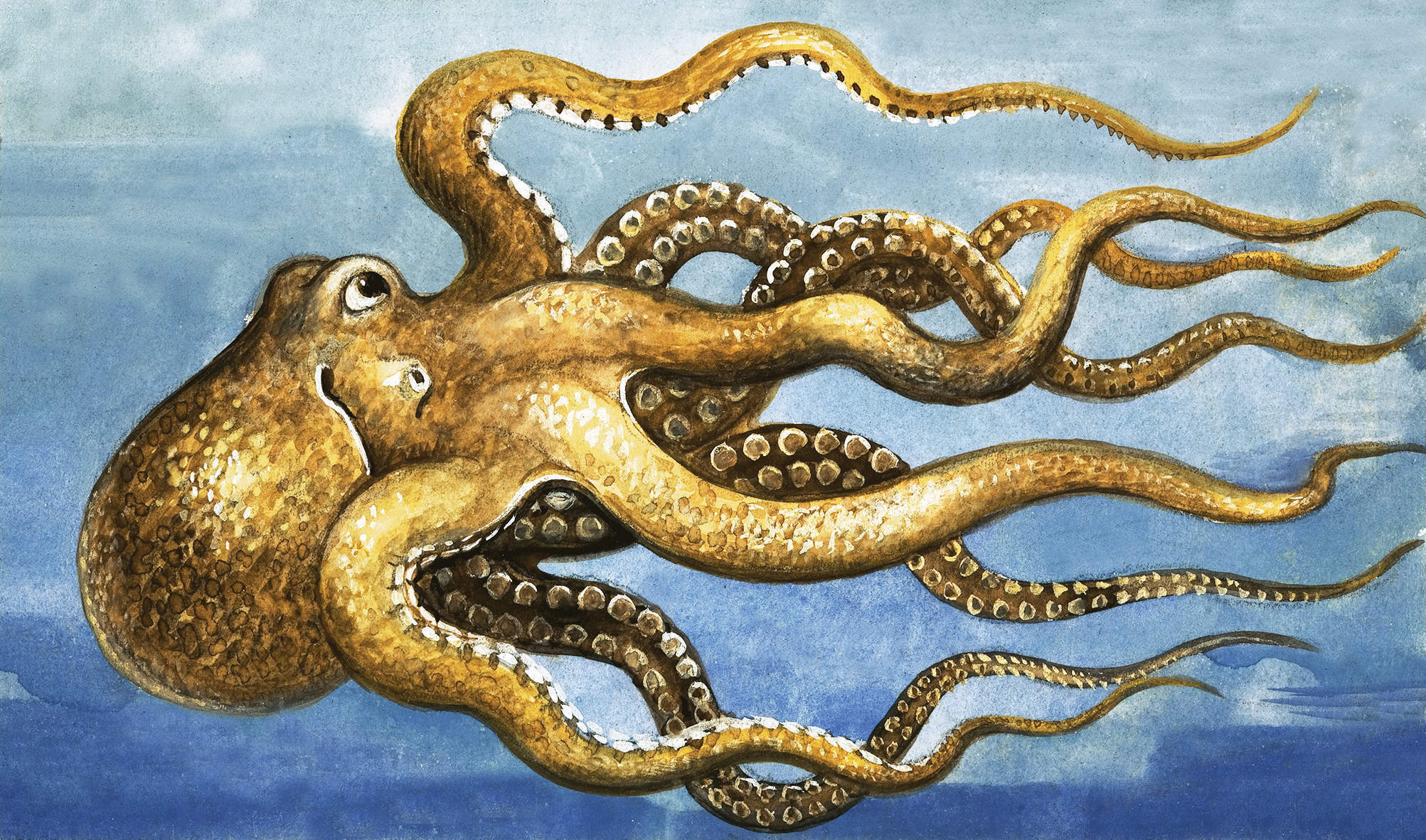The octopus, a creature of the deep that has fascinated marine biologists and ocean enthusiasts alike, is one of nature’s most extraordinary animals. Octopus With its eight arms, remarkable intelligence, and fascinating biology, the octopus is a marvel of evolutionary design and adaptability. In this article, we delve into the intriguing world of octopuses, exploring their unique characteristics, behavior, and the roles they play in their ecosystems and beyond.
Anatomy and Adaptations
The octopus belongs to the class Cephalopoda, which also includes squid and cuttlefish. This class is characterized by its members’ bilateral symmetry, lion prominent head, and highly flexible bodies. An octopus’s most distinctive feature is its eight arms, which are lined with sensitive suckers capable of gripping and manipulating objects with precision.

One of the most remarkable adaptations of the octopus is its ability to change color and texture. The skin of an octopus contains specialized cells called chromatophores, which can expand or contract to produce a wide range of colors. Additionally, the presence of iridophores and leucophores allows the octopus to reflect light and create iridescent effects. Octopus This camouflage capability is crucial for evading predators and hunting prey.
Another fascinating adaptation is the octopus’s ability to regenerate lost arms. If an octopus loses an arm, it can regrow it over time, a trait that not only helps with survival but also allows the octopus to recover from injuries.
Intelligence and Behavior
Octopuses are renowned for their intelligence, which is evident in their complex behaviors and problem-solving abilities. Studies have shown that quizzes octopuses can navigate mazes, solve puzzles, and even escape from enclosures. Their intelligence is thought to be a result of their highly developed nervous system and large brain-to-body ratio.

One of the most famous examples of octopus intelligence is their ability to use tools. In the wild, octopuses have been observed using coconut shells and seashells as shelters or weapons. In laboratory settings, octopuses have demonstrated the Octopus ability to unscrew jar lids to access food, a behavior that showcases their problem-solving skills.
Social behavior in octopuses is generally limited, as most species are solitary. However, there are instances of interaction, particularly during mating. Males and females engage in intricate courtship displays, and after mating, females lay thousands of eggs and exhibit a remarkable level of care, often guarding the eggs and refusing to eat until they hatch.
Habitat and Distribution
Octopuses are found in oceans around the world, from shallow reefs to deep-sea environments. Their diverse habitats include coral reefs, rocky Octopus crevices, and sandy sea floors. Some species, such as the common octopus (Octopus vulgaris), inhabit coastal waters, while others, like the deep-sea giant Pacific octopus (Enteroctopus dofleini), reside in deeper, more remote locations. national geographic kids
The octopus’s adaptability to various environments is a testament to its evolutionary success. In each habitat, the octopus utilizes its camouflage and stealth to avoid predators and catch prey, which can include fish, crabs, and other marine creatures.

Ecological Role
Octopuses play a crucial role in marine ecosystems as both predators and prey. As predators, they help control the populations of various marine organisms, maintaining a balanced ecosystem. Their feeding habits also influence the distribution of other species, as they can impact the abundance of their prey.
In turn, octopuses are an essential food source for a variety of larger marine animals, including sharks, rays, and larger fish. Their presence in the food web highlights their importance in maintaining the health and stability of oceanic ecosystems.
Conservation and Threats
Despite their adaptability, octopuses face several Octopus threats, many of which stem from human activities. Overfishing, habitat destruction, and pollution are significant concerns that impact octopus populations. The depletion of their prey species due to overfishing can disrupt their feeding patterns and overall health. animals
Additionally, climate change poses a threat to octopuses by altering ocean temperatures and acidification levels. These environmental changes can affect their habitat and the availability of prey, leading to potential shifts in octopus populations and distribution.

Conservation efforts are essential to address these challenges and ensure the continued survival of octopus species. Marine protected areas, sustainable fishing practices, and research initiatives are crucial in mitigating the impacts of human activities and preserving the delicate balance of marine ecosystems.
Octopuses in Culture and Science
The octopus has also made its mark in human culture and scientific research. In literature, art, and mythology, the octopus often symbolizes mystery, intelligence, and the unknown depths of the ocean. Its unique appearance and behavior Octopus have inspired countless works of fiction, including famous depictions in literature such as Jules Verne’s “20,000 Leagues Under the Sea.”

In scientific research, the octopus is a subject of interest due to its complex anatomy and behavior. Studies on octopus intelligence, camouflage, and regenerative abilities contribute valuable insights into neurobiology, robotics, and materials science. Octopus For example, researchers are exploring how the octopus’s ability to change texture could inspire new materials with adaptive properties.
Conclusion
The octopus stands out as one of the most intriguing and adaptable creatures of the ocean. Its remarkable physical adaptations, intelligence, and ecological role underscore its significance in marine environments. As we continue to explore and understand this fascinating animal, it is crucial to prioritize conservation efforts to protect its habitat and ensure its survival for future generations to marvel at.
By appreciating the complexity and beauty of the octopus, we not only gain insight into the wonders of marine life but also recognize the importance of preserving the delicate balance of our ocean ecosystems. The octopus, with its enigmatic allure and extraordinary capabilities, remains a testament to the marvels of nature and a reminder of the mysteries that still lie beneath the waves.

